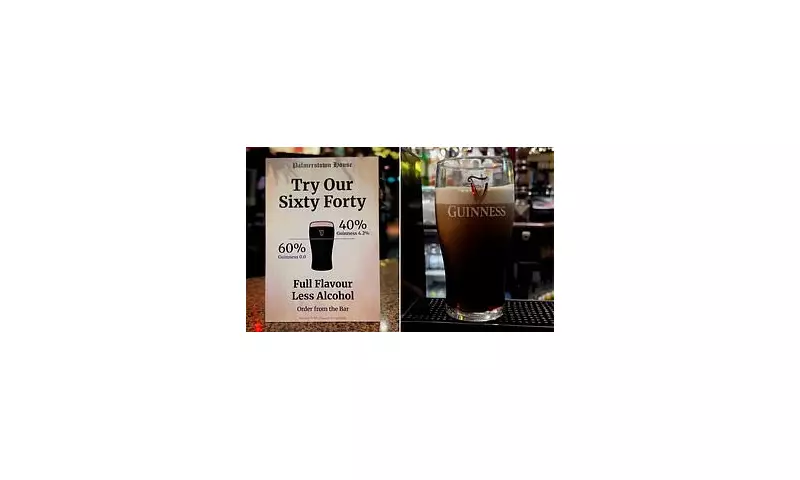
A Dublin pub has stirred up a storm on social media after introducing a controversial new take on the classic pint of Guinness. The Palmerstown House Pub unveiled its '60/40' creation, a hybrid drink blending non-alcoholic and traditional stout, to decidedly mixed reactions from the public.
The '60/40' Pint: A Lighter Guinness
The pub announced its new tipple on Instagram, describing it as having 'all of the Guinness character' but being 'just a little lighter' than a fully alcoholic pint. The concoction is made from approximately 60 per cent Guinness 0.0 and 40 per cent standard Guinness, which contains 4.2 per cent alcohol. This brings the overall alcohol content down significantly.
The establishment promoted it as a perfect option for when you fancy a pint but want to consume less alcohol. However, they were quick to clarify a crucial point: the drink 'is not a 0.0 option', making it unsuitable for those avoiding alcohol entirely, such as teetotallers.
A Pint Divided: Public Reaction to the Hybrid Brew
The response from punters was immediate and polarised. Many expressed strong negative feelings, with one Instagram commenter branding the idea 'a load of nonsense'. Another declared it 'should be illegal', while a third called the mix 'blasphemy' against the iconic stout.
One critic highlighted the economic angle, writing: 'Who the hell wants to have to buy more drinks to get drunk in this economy?' Others drew comparisons to a shandy, dubbing it a 'Guinness shandy' or jokingly referring to it as 'semi-skimmed Guinness'.
Yet, the innovation also found its champions. Supporters hailed the move as 'genius' and a 'marketing win'. One commenter revealed they had previously asked for such a mix in pubs and been looked at 'like I was a mentalist', expressing delight to see it become a formal offering. Another enthusiast proclaimed, 'I would drink hundreds of them. HUNDREDS!', praising low-alcoholic beer as ideal for summer or for avoiding getting 'plastered on a Tuesday'.
The Booming Market for Low and No-Alcohol Beer
This creative pint arrives amidst a sustained surge in demand for low and no-alcohol beverages. Guinness launched its popular 0.0 version in 2020, and despite an initial recall due to a contamination issue, it was successfully re-released in 2021.
Since then, its popularity has skyrocketed. Sales of Guinness 0.0 cans have been booming, and this year marked a significant milestone: Ocado sales of the non-alcoholic stout outstripped the original alcoholic version for the first time. A report in September revealed that 53 per cent of Guinness deliveries from Ocado, the UK's largest online-only supermarket, are now of the alcohol-free variant.
According to researcher NIQ, the brewer sells almost £50 million worth of Guinness 0.0 annually in shops and online supermarkets, accounting for about a fifth of its total off-sales market. It is now the nation's best-selling alcohol-free beer. The trend was further cemented last year when Guinness 0.0 was introduced on draught for the first time, capitalising on the stout's soaring popularity.
While the 60/40 pint may be a novel concept, it echoes past efforts like the mid-strength Guinness, which was launched in 2012 with 2.8 per cent ABV before being discontinued. Whether the Palmerstown House's experiment becomes a lasting trend or a flash in the pan, it undeniably highlights a significant and evolving shift in modern drinking culture.





